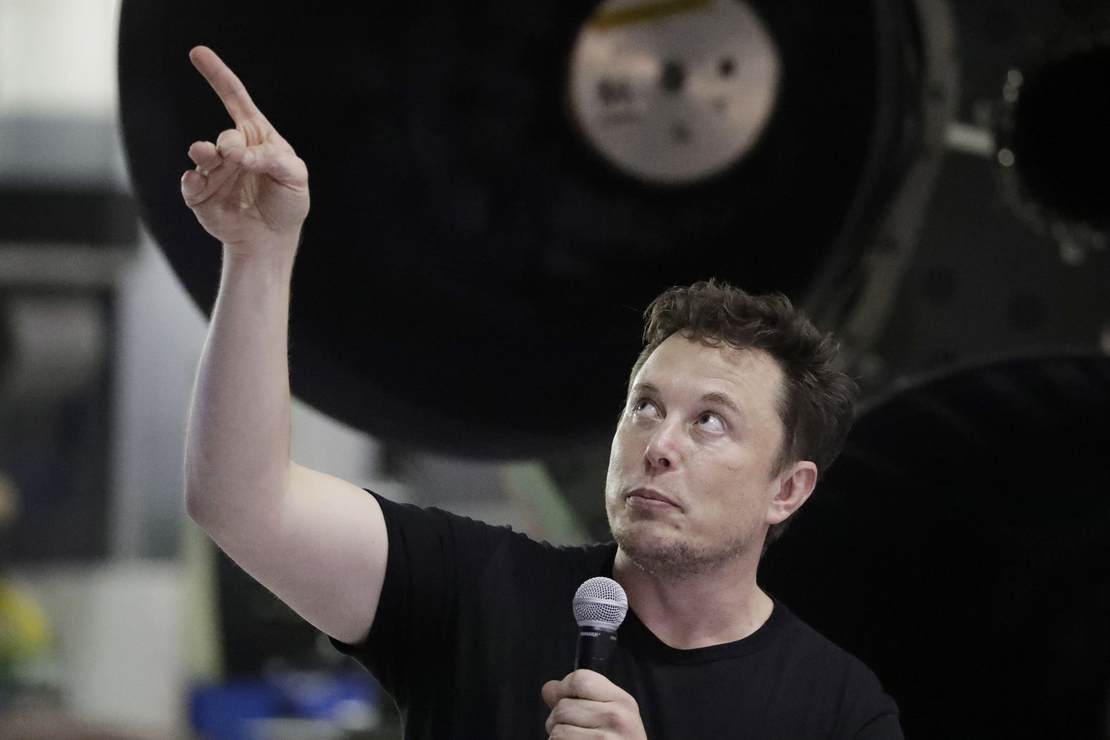
Somehow, I don’t think Parag Agrawal’s lengthy thread on the ambiguity of spam convinced Elon Musk to lift his “hold” on the buyout. In fact, as our friends at Twitchy point out, Musk used the emoji-embed function on the app to offer a pungent and terse summary of his feelings:
💩
— Elon Musk (@elonmusk) May 16, 2022
Musk actually had a more substantive response to this issue, but we’ll get to that in a moment. The reason that Agrawal offered this public response to Musk’s sudden pause in the buyout is that shareholders began bailing out on Friday and today over the loss of momentum for the buyout. That has sent Twitter’s stock price back to the level seen when Musk first announced his purchase of 9.2% of the outstanding shares in April:
Twitter stock fell back to levels not seen since Elon Musk first sparked takeover speculation last month by disclosed a stake in the social media company.
Shares were changing hands at $38.31 on Monday, down 6%. That’s below the $39.31 closing price on April 1, the last trading day before he disclosed a 9% stake. …
On Friday, he said the deal to takeover Twitter was “on hold” over reservations concerning fake accounts, or bots, on the platform. Musk has since reiterated his commitment to securing a deal, although some analysts say Musk could be using the bot issue as a scapegoat to abandon the deal for a breakup fee.
He raised new doubts about the deal after he tweeted on Saturday that Twitter’s lawyers claimed he violated a nondisclosure agreement by revealing the sample size for the platform’s checks on bots was 100.
The drop in the share price won’t immediately benefit Musk if he pursues the deal, since the price has already been set — at least as the deal stands at the moment, about which more later. It will largely benefit the bargain hunters that purchase shares at the new price if the buyout goes forward. If it doesn’t, however, the controversy over the spam ratio on the platform might keep sending the stock lower, wiping out new investment and leaving Twitter worse off than before Musk’s bid, even with the $1 billion divorce penalty they will collect from Musk.
To curtail a mass exodus on the cusp of the buyout, Agrawal claimed that the issue of spam content is far too nuanced for outside analysts to glean, especially Musk:
Some final context: fighting spam is incredibly *dynamic*. The adversaries, their goals, and tactics evolve constantly – often in response to our work! You can’t build a set of rules to detect spam today, and hope they will still work tomorrow. They will not.
— Parag Agrawal (@paraga) May 16, 2022
The hard challenge is that many accounts which look fake superficially – are actually real people. And some of the spam accounts which are actually the most dangerous – and cause the most harm to our users – can look totally legitimate on the surface.
— Parag Agrawal (@paraga) May 16, 2022
Now, we know we aren’t perfect at catching spam. And so this is why, after all the spam removal I talked about above, we know some still slips through. We measure this internally. And every quarter, we have estimated that <5% of reported mDAU for the quarter are spam accounts.
READ RELATED: Irish reunification? Sinn Féin win in Northern Ireland shakes up UK
— Parag Agrawal (@paraga) May 16, 2022
There are LOTS of details that are very important underneath this high-level description. We shared an overview of the estimation process with Elon a week ago and look forward to continuing the conversation with him, and all of you.
— Parag Agrawal (@paraga) May 16, 2022
Clearly this explanation didn’t satisfy Musk, either last week or today. Since the future of Twitter will depend on advertiser revenue, either under Musk or present management, the metrics on spam accounts versus actual human interaction becomes critical to the calculations of the platform’s future value. After tossing the poop emoji at Agrawal, Musk followed up with that specific point:
So how do advertisers know what they’re getting for their money? This is fundamental to the financial health of Twitter.
— Elon Musk (@elonmusk) May 16, 2022
That’s absolutely true. Of course, it’s also absolutely obvious, and one big reason why Musk might have been advised to use his position as largest stockholder to look at this issue before making a tender offer to take Twitter private — if profit was in fact his main motive. Musk insists that he plans to generate a lot of profit by convincing millions to buy paid subscriptions, enhance the advertiser experience, and streamline and consolidate Twitter’s internal structure. If this question is as important to profitability — and it is — why didn’t Musk satisfy himself on this key issue before making his buyout play?
Now the big question will be whether Musk forces a revaluation of the platform by demanding a more accurate estimate of spam activity as a percentage of the transactions on the platform. If Agrawal has to provide a more specific formula and a refined estimate that lands significantly north of the 5% mark, will Musk dump the buyout bid? Or will he try to force Agrawal and the board to accept a lower offer?
Musk said today that he might push for that option:
Elon Musk stoked speculation that he could seek to renegotiate his takeover of Twitter Inc., saying a viable deal at a lower price wouldn’t be “out of the question.” …
Musk spoke at a conference hosted by a podcast called “All-In” run by Chamath Palihapitiya, Jason Calacanis, David Sacks and David Friedberg. The $7,500-per-person event was sold out, and organizers said journalists were excluded from attending. Musk appeared at the Miami summit via video conference.
Musk began buying Twitter shares in January and disclosed a 9.2% stake in the company on April 4. Twitter’s board accepted Musk’s $44 billion bid to buy the company and take it private April 25, but the deal has yet to close and Twitter’s shares are trading far below Musk’s offer. One theory is that Musk is angling to pay a lower price for Twitter by raising the issue of fake accounts.
Before you bet heavy on that option, consider the risk that that route might end up getting the SEC involved to the extent that these public remarks depressed the price of the stock. Did Musk intend on picking this fight in public to squeeze Twitter’s board to come down on price? You can bet that some shareholders who bought high only to get stiffed in a discounted buyout will make that allegation. Musk could then argue that the board misled both the stockholders and him with deceptively low estimates of spam on the platform. That fight could continue for another several years if both sides fight to win.
The only thing for sure in this contretemps is that Agrawal’s tossing out a blizzard of spin, and Musk rightly isn’t buying it, even if he ends up buying Twitter at the original bid price.
Source:





